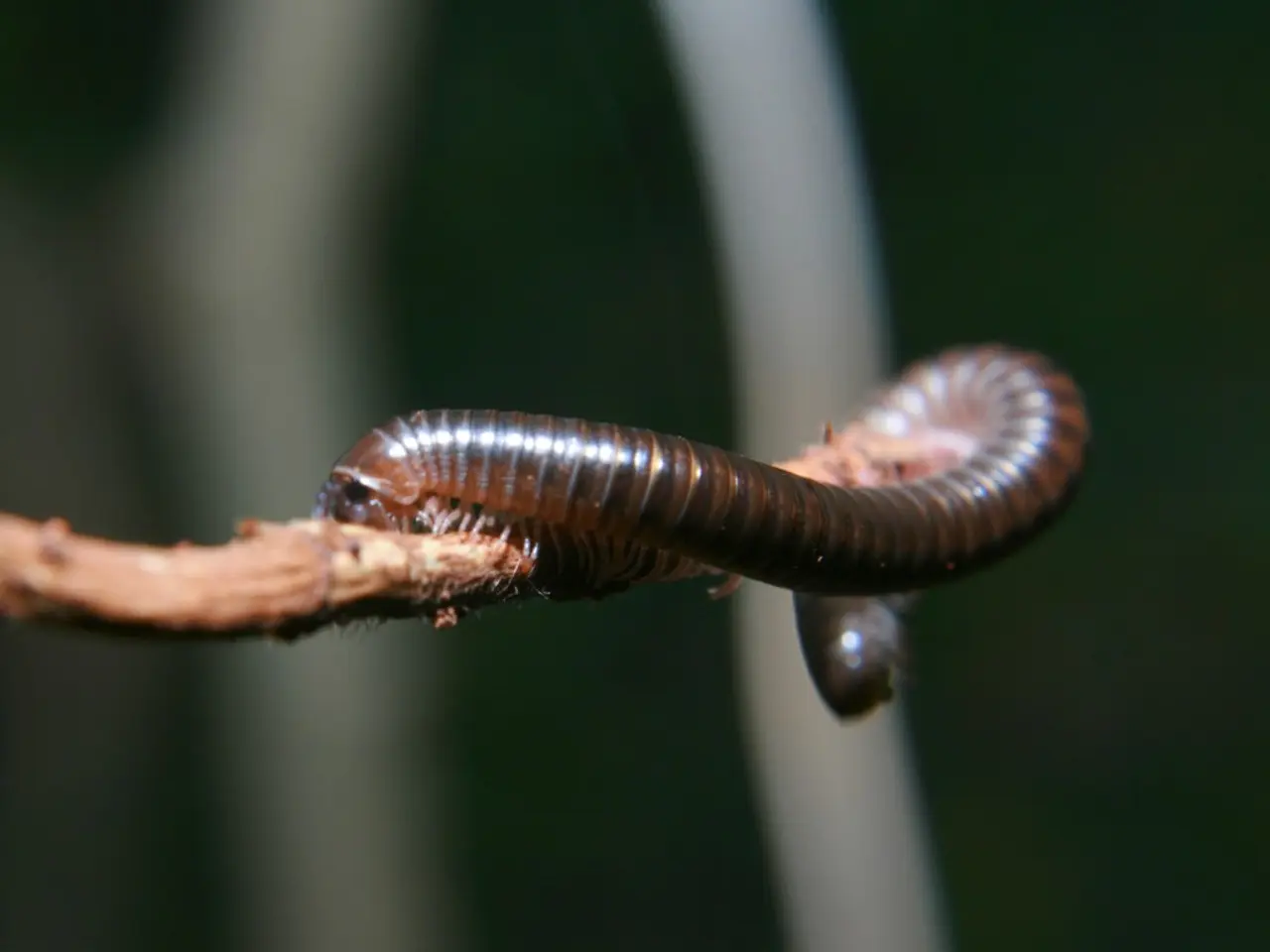Lawn Health Boost from Worm Casts, Yet Experts Warn of Potential Annoyance – Discover Their Single Recommended Approach to Manage Them
Got a lawn with those spiral piles of dirt bugging you? Those are probably worm casts. Don't freak out, they're actually a sign of a healthy lawn. But if you're all about that green carpet look, these buggers might be a bit of a hassle.
So what's the deal with worm casts on lawns? I dug into it and talked to a few lawn pros who spilled the deets on the benefits they bring and how to deal with them effectively.
What are worm casts on lawns?
Worm casts are small, spiraled mounds of soil that occur when certain types of earthworms deposit their waste on the grass surface. These critters are busy getting their chow down, eating the lawn's organic material like thatch and leaf litter, breaking it down, and then, well, putting it back out on the surface in these compact little balls.
Taylor Olberding, co-founder of Heroes Lawn Care, explains it like this: "Worm casts are just little mounds of soil left behind after earthworms have done their thing underground. In most cases, they're not doing real harm, more of a nuisance, especially if you're aiming for that perfect lawn look."
Worm casts on lawns tend to show up in the morning after wet weather, especially during the spring and fall. They're a normal part of lawn life, but they can be a bit irritating if you're all about pristine grass.
Taylor holds a degree in turf and landscape management from the University of Nebraska. So he knows his stuff when it comes to lawns.
Aren't worm casts bad for lawns?
Nope, the answer is a resounding no. While they can be a bit of an eyesore, worm casts actually bring some major benefits to your lawn.
Ryan Farley, CEO of LawnStarter, puts it like this: "Worm casts shouldn't be seen as a problem at all when you see them on your grass. In fact, I'd regard them as a positive sign and can provide great natural fertilizer for your soil. Worm casts are essentially just waste products from earthworms, and earthworms in your soil are a great sign that things are working as they should."
Chrissie Handley from Online Turf agrees, praising worms for their work in enriching the soil, aerating it, and breaking down thatch. She says the benefits worms bring to grass health outweigh the negatives of the unsightly casts.
Steve Peeler, an agronomist with Simple Lawn Solutions, suggests that worm casts might be more of a visual issue on low-cut turfgrass like golf courses or athletic fields. But for home lawns, he thinks it's not a huge concern unless the grass is being kept at a very short height.
Ryan Farley is the CEO of LawnStarter, a lawn care service founded in 2013 and based in Austin, Texas.
Expert tips for dealing with worm casts on lawns
Worm casts can affect your lawn's appearance and, if not managed properly, potentially impact its health. So what do the experts recommend doing with worm casts on lawns? Should you leave them in place or take action?
Chrissie Handley advises taking action, especially if you mow the lawn. "If you leave worm casts on the lawn, they can smear into your grass when mowing, making them look even more unsightly," she says. "Smeared casts can prevent airflow to the grass and ground, making it more likely for weeds to grow."
Walking on the casts can also smear them, and the flattened castings can create bare spots in the grass that can become ideal environments for weeds to germinate, especially in spring.
So when should you remove worm casts on lawns, and how can you do it efficiently? Luckily, it's a quick and easy process.
"I wait until they've dried out a bit, usually by mid-morning, and then I lightly brush them off with a stiff broom or the back of a rake," says Taylor Olberding. "That way, you're not damaging the grass."
It's best to wait until the mounds are dry, so they crumble easily and mix into the ground instead of smearing over the grass surface.
Taylor advises staying away from worm suppressants unless you're dealing with an extreme situation, as earthworms offer many positives for lawn and soil health.
To reduce earthworm activity and limit the number of casts without harming the worms, consider collecting grass clippings and controlling when and how you water your lawn. Steve Peeler suggests controlling soil moisture is key to controlling worm casts on home lawns.
Chrissie Handley is a lawn care specialist providing personalized advice on lawn laying, maintenance, and care for Online Turf. Steve Peeler is a certified Sports Field Manager with decades of hands-on turfgrass experience, making his way from Program Director at Catawba Valley Community College in North Carolina to Field Manager for several MLB teams. He's currently the Internal Agronomist for Simple Lawn Solutions.
FAQs
What can I put on my lawn to get rid of worms?
Earthworms aren't exactly a pest that you want to get rid of, as they provide numerous benefits to your lawn. However, if you want to lower the pH of your soil and make it slightly acidic to reduce the earthworm population, you can use sulfur or fertilizers containing aluminum or iron sulfate. Keep in mind that a balance of earthworms is essential for a healthy lawn, and eliminating them completely can have negative consequences.
Worm casts can be utilized in a different capacity – in a wormery for composting. By adding kitchen waste to a wormery, the worms convert it into nutrient-rich compost that can be used in garden beds, borders, and pots. You can easily make a wormery, and Amazon offers affordable options like this three-tray worm composter.
Grass seeds and fertilizers can also be spread using a mini broadcast spreader, which is suitable for small or medium-sized lawns. Fast-germinating cool-season grass seeds can provide quick lawn coverage, while fertilizers can help with water absorption, retention, and building strong, deep roots.
Worm casts on lawns are beneficial for the health of the lawn, as they aerate the soil, enrich it, and provide natural fertilizer. However, if you prefer a pristine-looking lawn, worm casts might be a nuisance. To manage worm casts, experts suggest lightly brushing them off with a stiff broom or the back of a rake after they've dried out. alternatives uses for worm casts include composting in a wormery for home gardening.







